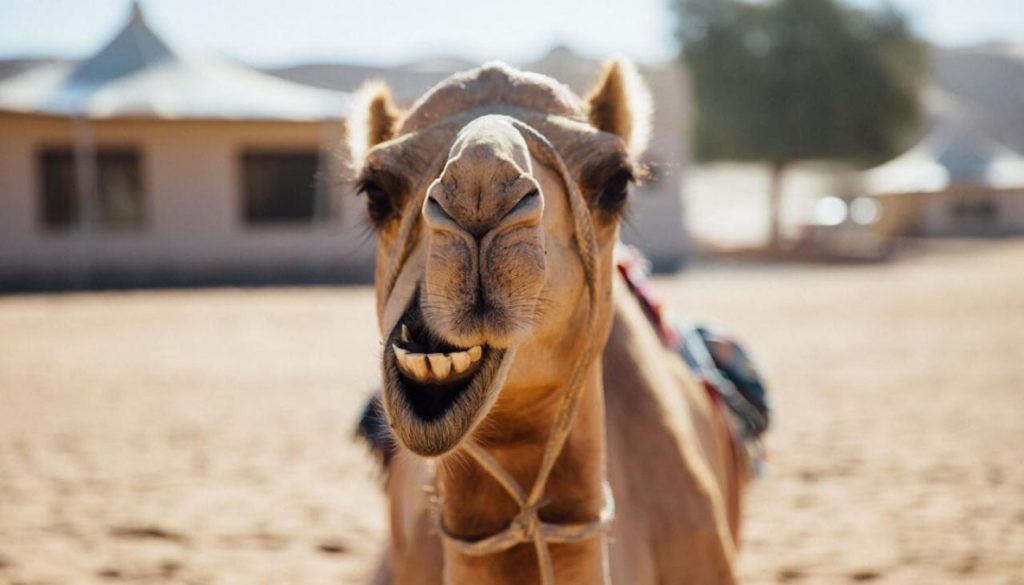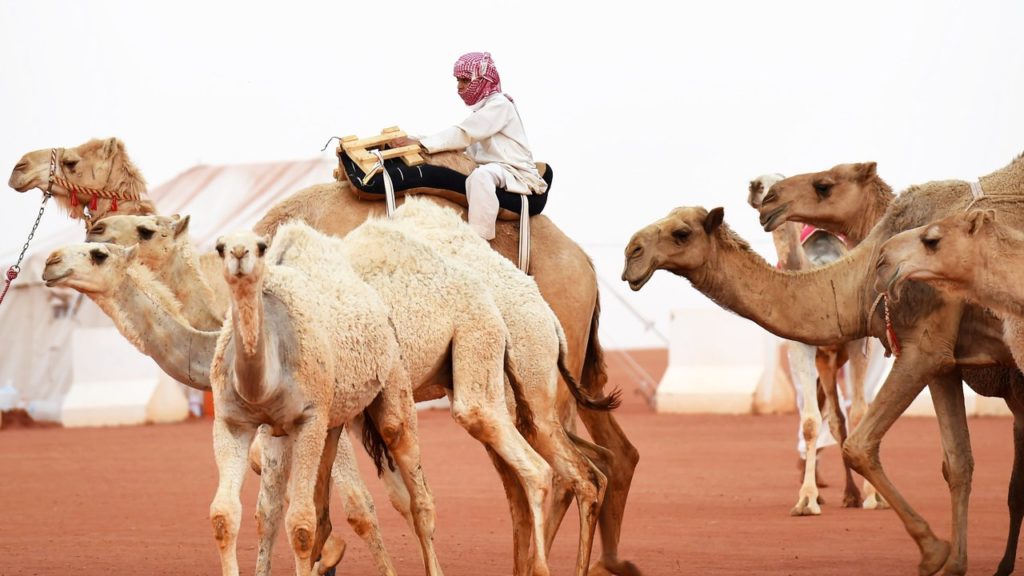By Muhammed Aladdin.
For thousands of years, before the discovery of oil and the invention of automobiles, camels ruled the Arabian deserts. These elegant beasts have been an integral part of the Arab World’s cultural heritage, especially the Kingdom of Saudi Arabia.
The camel has been an enduring symbol of the nomadic desert lifestyle of the Bedouin tribes of Arabia. In fact, linguists have discovered that there are more than 100 words in the Arabic language that describe these animals, from their names to the sounds they make.

The annual King Abdulaziz Camel Festival is a celebration of nomadic traditions, where camels are put on a pedestal. The event is a reminder of the significant role of camels in Saudi Arabia’s history, and how Bedouins relied on them for transport and food.
The festival has become one of Saudi Arabia’s most popular touristic attractions, bringing to the desert region of Al-Dahnaa hundreds of thousands of spectators and more than 30,000 camels.
The most-anticipated feature of the month-long celebration is a camel beauty contest, where camels are paraded before judges, who choose the beauty queens based on the fullness of their lips, the length of their necks, and the size of their humps. Yes, you read that right.

The festivities combine culture, heritage, and tradition in a way that could seem a bit strange to an outsider but is completely understandable when put in the proper historical context.
In 2018, the event’s combined pool of prizes were worth a whopping $78.8mn, with $370,400 allocated to the beauty pageant alone.
The event is so big that it has its own scandals. Last year, 12 camels were disqualified after it was found out that their owners injected them with botox to plump up their lips, noses, and jaws.
Like any other high-stake competition, the camel beauty pageant is not without its own set of rules and restrictions. For instance, qualification is only limited to female camels born in Saudi Arabia as no foreign-born camels are allowed to compete.

In the days before the final showdown, owners ride with their herds all day long, paying attention to their favorite camels, and in the morning and evening before the contest, female camels are fed a special meal of barley and clover to keep them in good shape.
All in all, despite its strangeness, it is an event that is sure to make you appreciate Arabian culture and heritage.



